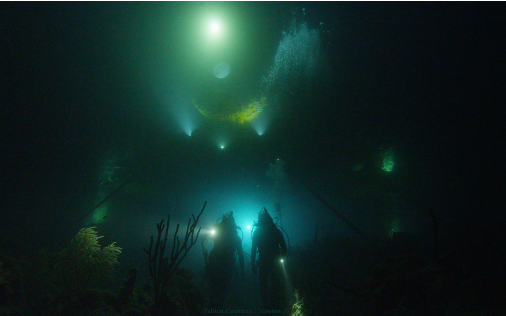The National Oceanic and Atmospheric Administration (NOAA) and Proteus Ocean Group have signed an agreement to use the Proteus, known as the underwater space station of the ocean, to advance marine science, research and education.
NOAA and Proteus Ocean Group seek to develop a deeper understanding of the ocean environment and reveal solutions to some of the planet’s most pressing concerns, including those related to climate change.
Proteus, the first underwater site of this stature, will be located off the Caribbean island of Curacao. It will serve as an underwater habitat where scientists, innovators, private citizens, the public sector and global customers can live underwater to study the ocean environment for extended periods of time. In addition to state-of-the-art scientific laboratories, living quarters, and an underwater garden for food production, Proteus will include a full-scale video production facility to provide live streaming for research and educational programming.
“This partnership has the potential to greatly expand our capabilities in studying the ocean,” Jeremy Weirich, the director of NOAA Ocean Exploration, said in a statement. “By living underwater for extended periods in this new ocean laboratory, we’ll be able to unlock the ocean’s mysteries so that we can better manage, sustainably use, protect and appreciate its resources.”
Under the new cooperative research and development agreement, NOAA and Proteus Ocean Group will work together to identify opportunities for research using the unique capabilities of Proteus. NOAA will provide access to scientific experts, vessels and other technology, expedition plans and mission results relevant to Proteus activities, as well as access to shoreside facilities and programs throughout the agency’s mission portfolios of the ocean, weather, climate and coastal science. Proteus Ocean Group will share data and insights related to the development phase of the underwater habitat.
“On Proteus we will have unbridled access to the ocean 24/7, making possible long-term studies with continuous human observation and experimentation,” Fabien Cousteau, founder and chief oceanic explorer of Proteus Ocean Group said. “With NOAA’s collaboration, the discoveries we can make — in relation to climate refugia, super corals, life-saving drugs, micro environmental data tied to climate events and many others — will be truly groundbreaking. We look forward to sharing those stories with the world.”
The partners may undertake joint expeditions, exchange personnel and share methods of operation related to missions to study the ocean environment. They will also work together to communicate their activities to increase public engagement in marine science.
The agreement supports the goals of both partners to better understand the impacts of climate change on the ocean, increase public engagement in ocean exploration and improve decisions related to ecosystem health and resilience.



.JPG.small.400x400.jpg)

